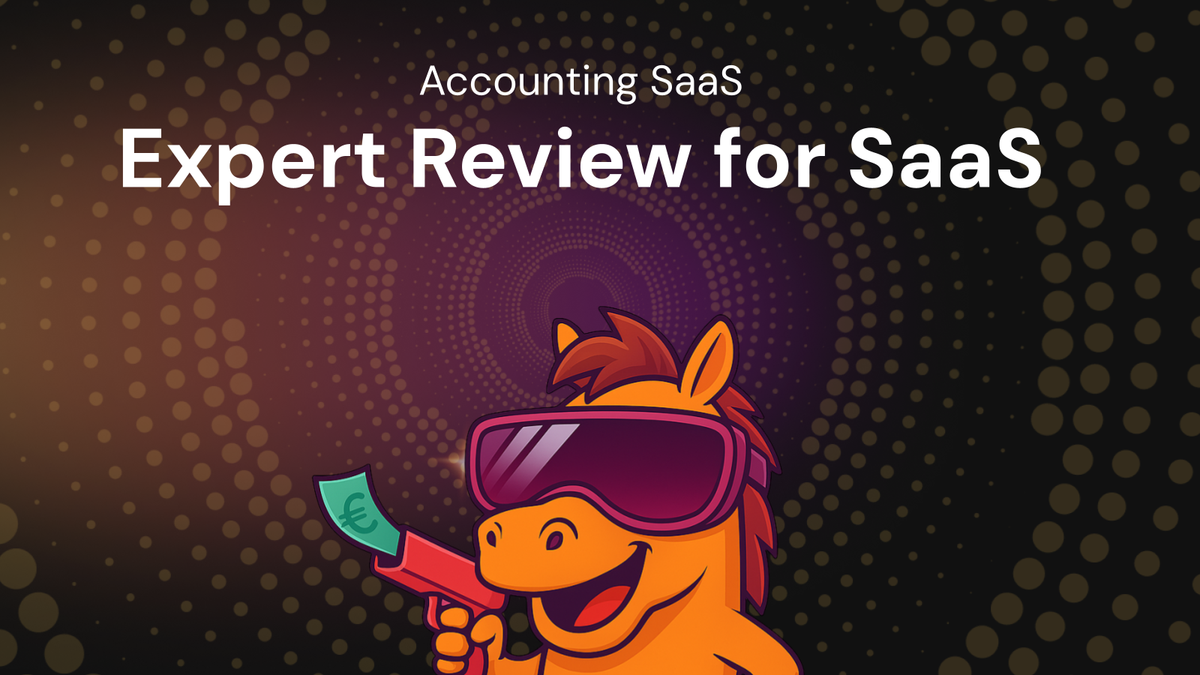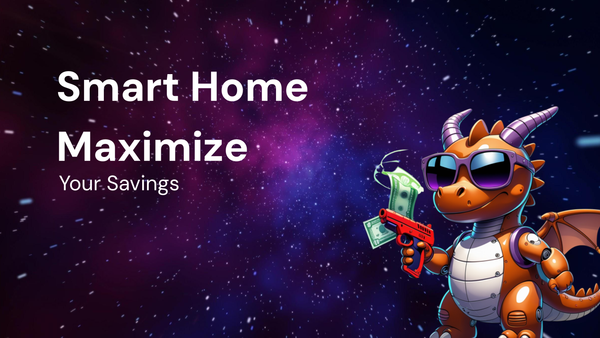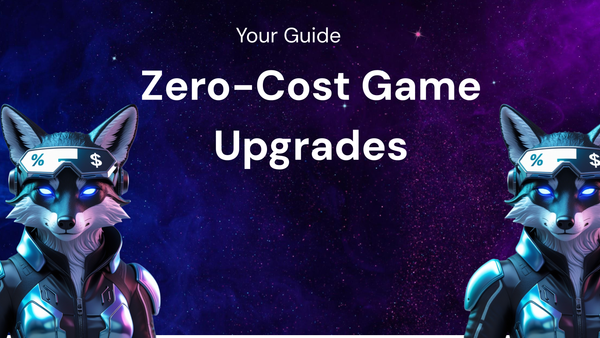Smart guide to expert review when buying accounting SaaS

Smart Guide to Expert Review When Buying Accounting SaaS
Choosing the right accounting SaaS (Software as a Service) is a critical decision for any business. It can streamline financial operations, improve accuracy, and provide valuable insights for strategic decision-making. However, with a plethora of options available, each promising to be the "best," navigating the landscape can feel overwhelming. Relying solely on vendor marketing materials and generalized online reviews can be misleading. This is where expert review comes in.
An expert review goes beyond superficial analysis and dives deep into the practical application, technical nuances, and real-world benefits (or drawbacks) of a specific accounting SaaS solution. Engaging an expert ensures you make an informed decision, selecting a system that truly aligns with your business needs, budget, and long-term goals.
This guide provides a smart, step-by-step approach to leveraging expert reviews effectively during your accounting SaaS selection process.
I. Why Expert Review Matters in the Accounting SaaS Selection Process
Before delving into the how, let's solidify the why. Expert review isn't just a "nice-to-have" – it's a strategic necessity for the following reasons:
- Unveiling Hidden Costs and Limitations: Vendors often highlight the advantages of their software, but might downplay potential hidden costs (implementation fees, data migration charges, add-on modules) or limitations (integration compatibility, scalability constraints). An expert review can uncover these crucial details. For example, a seemingly affordable SaaS might require extensive customization to handle complex inventory management, significantly increasing the overall cost.
- Assessing True Usability and User Experience: A visually appealing interface doesn't guarantee ease of use. An expert, particularly one with hands-on experience with similar businesses, can evaluate the software's intuitiveness, workflow efficiency, and user-friendliness for your specific team. They can identify potential pain points or areas where training might be extensive.
- Validating Vendor Claims and Marketing Hype: Marketing materials are designed to sell, and often paint an idealized picture. An expert can critically assess vendor claims regarding features, performance, and customer support, comparing them against real-world usage and industry best practices. They can differentiate between genuine innovation and mere repackaging of existing functionality.
- Ensuring Compliance and Regulatory Alignment: Accounting software must comply with relevant regulations and industry standards (GAAP, IFRS, SOX, etc.). An expert with accounting domain knowledge can verify the software's adherence to these requirements, mitigating potential legal and financial risks. They can assess the system's audit trail capabilities, data security measures, and reporting accuracy.
- Identifying Integration Challenges and Opportunities: Accounting software rarely operates in isolation. It needs to seamlessly integrate with other business systems (CRM, ERP, e-commerce platforms). An expert can evaluate the software's integration capabilities, identify potential compatibility issues, and recommend strategies for optimizing data flow between systems. They can assess the availability of pre-built integrations and the flexibility of the software's API.
- Gaining an Unbiased Perspective: Unlike vendor demos or customer testimonials, expert reviews offer an unbiased perspective. Experts typically have no vested interest in promoting a particular product and can provide an objective assessment of its strengths and weaknesses. They are free to point out areas where the software falls short and suggest alternative solutions that might be a better fit.
- Reducing the Risk of Implementation Failure: Implementing a new accounting SaaS is a significant undertaking. An expert review can help you anticipate potential challenges, plan for data migration, and develop a realistic implementation timeline. By identifying potential pitfalls early on, you can minimize the risk of implementation delays, cost overruns, and user adoption issues.
II. Types of Experts and How to Find Them
The effectiveness of an expert review hinges on the expertise and experience of the individual providing it. Here's a breakdown of different types of experts and where to find them:
- Independent Accounting Consultants: These professionals specialize in helping businesses select and implement accounting software. They have extensive knowledge of the market and can provide unbiased recommendations based on your specific requirements. They often have experience with multiple SaaS platforms and can offer comparative analysis.
- Where to Find Them: Industry associations (AICPA, IMA), online directories (Consultant Marketplace), professional networking sites (LinkedIn), referrals from other businesses.
- Experienced Accountants with SaaS Implementation Experience: Accountants who have personally implemented and used different accounting SaaS solutions can offer valuable insights into the practical aspects of using the software in a real-world setting. They can speak to the day-to-day challenges and benefits of the system.
- Where to Find Them: Your existing network of accountants, industry events, LinkedIn, referrals from accounting firms.
- Software Review Platforms with Qualified Experts: Some software review platforms (e.g., G2, Capterra, TrustRadius) feature expert reviews written by verified users or industry analysts. These reviews can provide a comprehensive overview of the software's capabilities and limitations.
- Where to Find Them: G2, Capterra, TrustRadius, Gartner Peer Insights. Look for reviews marked as "verified" or "expert."
- IT Consultants Specializing in SaaS Implementations: These consultants have a deep understanding of the technical aspects of SaaS implementations, including data migration, system integration, and security. They can help you assess the software's technical feasibility and identify potential integration challenges.
- Where to Find Them: IT consulting firms, online directories, referrals from other businesses.
Key Considerations When Choosing an Expert:
- Industry Expertise: Select an expert with experience in your specific industry. A consultant specializing in manufacturing accounting will have a different perspective than one focused on retail.
- Software Experience: Ensure the expert has hands-on experience with the specific accounting SaaS solutions you are considering.
- Relevant Experience: Choose an expert whose experience aligns with the size and complexity of your business. A consultant who has worked with small businesses might not be the best fit for a large enterprise.
- Objectivity and Impartiality: Confirm that the expert has no vested interest in promoting a particular software vendor.
- Communication Skills: Select an expert who can clearly communicate complex technical information in a way that is easy to understand.
III. Preparing for the Expert Review Process: Defining Your Needs
Before engaging an expert, it's crucial to define your specific needs and objectives. This will ensure that the expert review is focused and relevant.
- Identify Your Current Pain Points: What are the biggest challenges you face with your current accounting system or processes? Are you struggling with manual data entry, inaccurate reporting, or lack of integration with other systems?
- Define Your Key Requirements: What are the must-have features and functionalities for your new accounting SaaS? Do you need advanced inventory management, project accounting, multi-currency support, or robust reporting capabilities?
- Establish Your Budget: Determine how much you are willing to spend on the accounting SaaS, including implementation costs, training fees, and ongoing subscription fees.
- Define Your Implementation Timeline: Set a realistic timeline for implementing the new accounting SaaS. Consider the complexity of the implementation process and the availability of resources.
- Identify Key Stakeholders: Involve key stakeholders from different departments (finance, operations, sales) in the needs assessment process. This will ensure that the chosen software meets the needs of all users.
- Document Your Current Processes: Map out your existing accounting workflows to provide the expert with a clear understanding of your business processes. This will help them assess how the new software will impact your operations.
- Create a List of Questions: Prepare a list of specific questions for the expert. These questions should address your concerns about the software's functionality, usability, security, and compliance. Examples include:
- "How does this software handle complex inventory valuation methods?"
- "Is the software compliant with [Specific Regulation]?"
- "What are the integration capabilities with [Specific CRM/ERP system]?"
- "What are the typical implementation challenges and how can they be mitigated?"
- "What type of training and support is available for users?"
- "How does the software handle data security and privacy?"
- "Can the software scale to accommodate future growth?"
- "What are the long-term costs associated with this software (including updates and maintenance)?"
IV. Conducting the Expert Review: Asking the Right Questions
Once you've selected an expert and defined your needs, it's time to conduct the review. This involves asking the right questions and actively listening to the expert's insights.
- Schedule a Dedicated Session: Allocate sufficient time for the expert review. Avoid rushing through the process.
- Provide Context: Start by providing the expert with a brief overview of your business, your current accounting system, and your objectives for implementing a new SaaS solution.
- Ask Open-Ended Questions: Encourage the expert to provide detailed and nuanced answers. Avoid questions that can be answered with a simple "yes" or "no."
- Probe Deeper: Don't hesitate to ask follow-up questions to clarify any points or to explore specific areas in more detail.
- Focus on Your Specific Needs: Steer the conversation towards your specific requirements and use cases. Avoid getting sidetracked by general features or capabilities that are not relevant to your business.
- Request a Demonstration: If possible, ask the expert to demonstrate specific features of the software. This will allow you to see the software in action and assess its usability.
- Ask About Alternatives: Inquire about alternative software solutions that might be a better fit for your needs.
- Take Detailed Notes: Document the expert's insights and recommendations.
- Don't Be Afraid to Challenge: If you disagree with the expert's assessment, don't be afraid to challenge their opinion or to ask for further clarification.
- Request a Written Report: Ask the expert to provide a written report summarizing their findings and recommendations. This will provide you with a valuable reference document for your decision-making process.
V. Evaluating and Acting on Expert Review Findings
The final step is to evaluate the expert review findings and use them to inform your decision.
- Compare and Contrast: Compare the expert's assessment with your own research and findings. Identify any discrepancies or areas of disagreement.
- Prioritize Recommendations: Rank the expert's recommendations based on their importance and feasibility.
- Conduct Further Research: If the expert has raised any concerns or suggested alternative solutions, conduct further research to gather more information.
- Involve Key Stakeholders: Share the expert review findings with key stakeholders and solicit their feedback.
- Request Vendor Demos: Schedule demos with vendors of the software solutions that are most promising.
- Conduct a Pilot Program: Consider conducting a pilot program with a small group of users before making a final decision.
- Negotiate Pricing and Terms: Negotiate pricing and terms with the selected vendor.
- Develop an Implementation Plan: Develop a detailed implementation plan that outlines the steps required to deploy the new accounting SaaS.
- Monitor and Evaluate: Continuously monitor and evaluate the performance of the new accounting SaaS to ensure that it is meeting your needs.
VI. Beyond the Initial Purchase: Ongoing Expert Consultation
The value of expert consultation extends beyond the initial software selection. Consider engaging an expert for:
- Implementation Support: Expert assistance during the implementation phase can ensure a smooth and successful deployment.
- Training and Onboarding: Experts can provide customized training and onboarding programs to help your team effectively use the new software.
- Process Optimization: Experts can help you optimize your accounting processes to leverage the full capabilities of the new software.
- Ongoing Support: Experts can provide ongoing support and guidance to address any questions or issues that may arise.
Conclusion:
Investing in expert review when buying accounting SaaS is a strategic move that can save you time, money, and frustration in the long run. By following the steps outlined in this guide, you can ensure that you make an informed decision, selecting a software solution that truly aligns with your business needs and helps you achieve your financial goals. Don't rely solely on vendor marketing materials or generic reviews. Take the time to engage an expert and gain an unbiased, in-depth understanding of your options. The investment in expertise will pay dividends through a smoother implementation, better user adoption, and a more powerful and effective accounting system.




